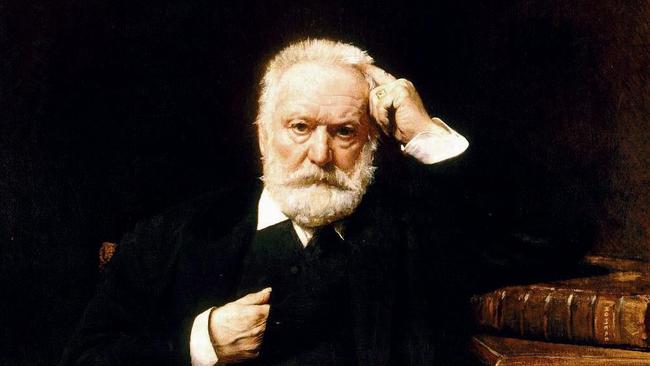Les Miserables writer was once an ardent royalist
THE son of one of Napoleon’s generals, Victor Hugo became a great champion for the lowliest members of society.

Today in History
Don't miss out on the headlines from Today in History. Followed categories will be added to My News.
When people say the words Les Miserables we now tend to think of the epic, multi-million dollar stage musical, soon to be staged again at the Capitol Theatre. However they originally referred to the wretched, impoverished masses at the bottom of society.
The musical, which tells the story of a man convicted of stealing a loaf of bread and the path his life takes when he is released 20 years later, is based on a novel by French author Victor Hugo. Born 213 years ago today, it was published when Hugo was 60 and displayed a great depth of compassion for the poor.
Hugo began life as an ardent royalist but later became a liberal and a republican with a strong sense of social justice. In his works such as Les Miserables and Notre Dame de Paris he looked at social issues such as poverty, injustice, inequality and the death penalty.
Born on February 26, 1802, in Besancon in eastern France, his father, Joseph-Leopold-Sigisbert Hugo, was a general under Napoleon, his mother, Sophie Trebuchet, the daughter of a slave trader. In his youth the family often followed the father to wherever he was posted, but they always returned to Paris.
Hugo developed an interest in writing, particularly poetry, when he was very young and won a prize for his poetry from the Academie Francaise at 15. He was only 20 when King Louis XVIII, the first king to take the throne after the overthrow of Napoleon, granted him a royal salary in 1822 for his pro-royalist poems in his first published book Odes et poesies diverses.
Hugo married childhood friend Adele Foucher the same year. They would have five children, the first of whom died in infancy.
His first novel, Hans Of Iceland, published in 1823, was a love story set in his romantic vision of Iceland and brought him into contact with other Romanticist writers with whom he formed the Muse Francaise group.
The 1827 publication of his verse drama Cromwell, based on the life of Oliver Cromwell, expressed his growing republicanism, but became more famous for its preface that was a manifesto for his kind of Romanticism.
Hugo demanded that drama show ugliness as well as beauty.
He began writing poetry extolling the republican virtues of Napoleon and found his work being censored for anti-royal sentiments.
While his reputation at the time rested largely on his lyric poetry, the publication of his novel Notre Dame de Paris (usually titled The Hunchback Of Notre Dame In English) in 1831, established his reputation for historical novels and became a bestseller. Set in the 15th century and centred on the great Parisian cathedral and its deformed bellringer Quasimodo, it looked at all of society from the king to the homeless living in the streets of Paris and looked at the injustices within medieval society.
His liberal republican political leanings became stronger in the 1830s, and he used theatre as a voice for his ideas. The 1832 play Le Roi s’amuse (The King’s Fool) depicted a decadent and tyrannical king taking liberties with his subjects. It would later be the basis for the opera Rigoletto.
He also had other reasons to be interested in theatre. In 1833 he began an affair with actress Juliette Drouet, the pair would remain together for the rest of his life.
Elected in 1841 to the Academie Francaise, France’s pre-eminent body on the French language and literature, he had less time for writing. The death of his oldest surviving child, his daughter Leopoldine, in 1843 and his election to the upper house of French Parliament in 1845 also impacted on his publishing output.
He poured his grief into poetry musing on death, and in the late 1840s began a new novel, which was put aside when the 1848 revolution saw him take a more active political role in the Constituent Assembly and the Legislative Assembly.
When Napoleon III was installed as ruler during an 1851 coup d’etat, Hugo joined resistance to the new leader but then fled into exile. Initially he lived in Brussels, but then moved to Jersey in the Channel Islands before being expelled from there and living in Guernsey.
It was a productive period for his writing, publishing books of history, poetry and returning to his unfinished novel which was be published in 1862 as Les Miserables. The novel was well received, particularly in France but he chose to remain in exile until Napoleon III was deposed in 1870 as a result of defeat in the Franco-Prussian War. He was hailed as a national hero.
He continued to write until his health began to decline in 1878 and died in 1885, honoured with a national funeral. Thousands viewed his body as it lay in state beneath the Arc de Triomphe and his body was interred in the Pantheon.



